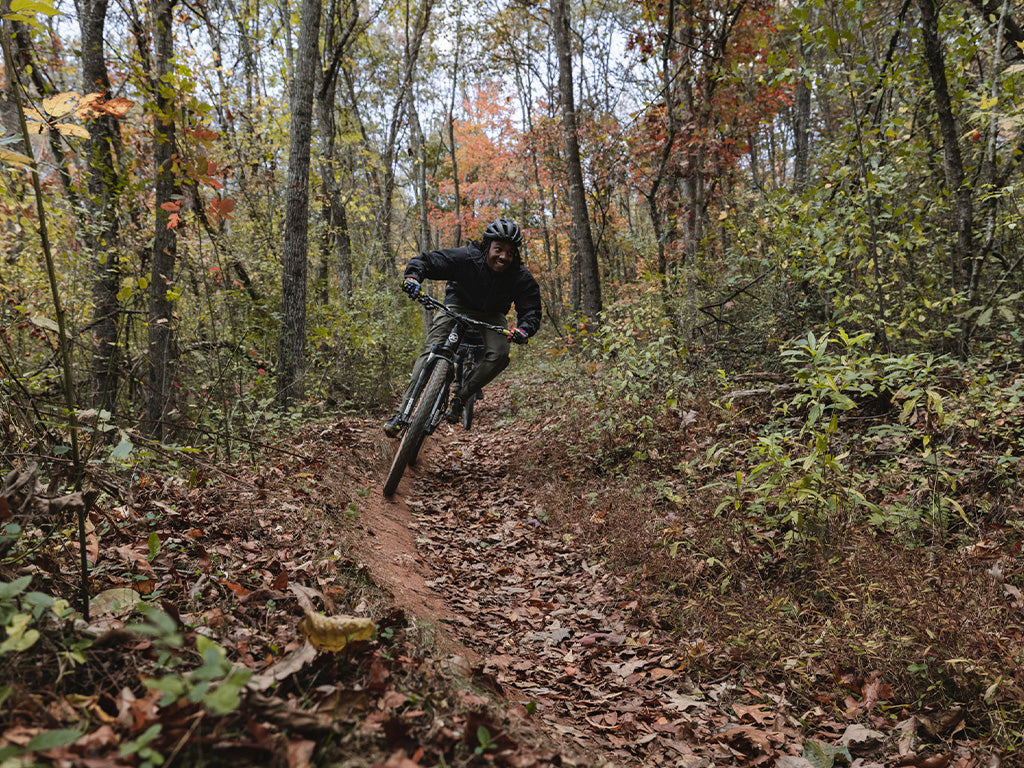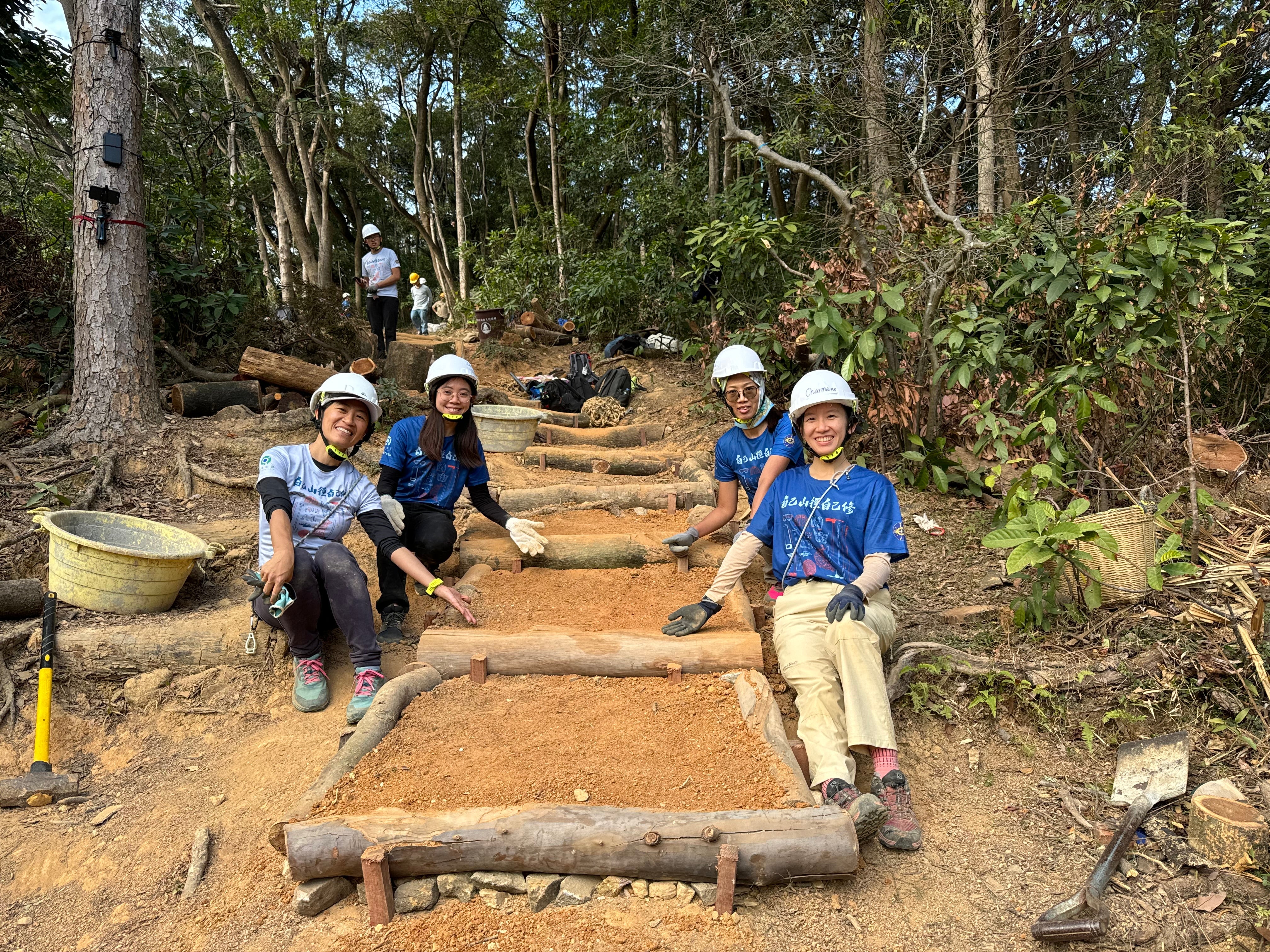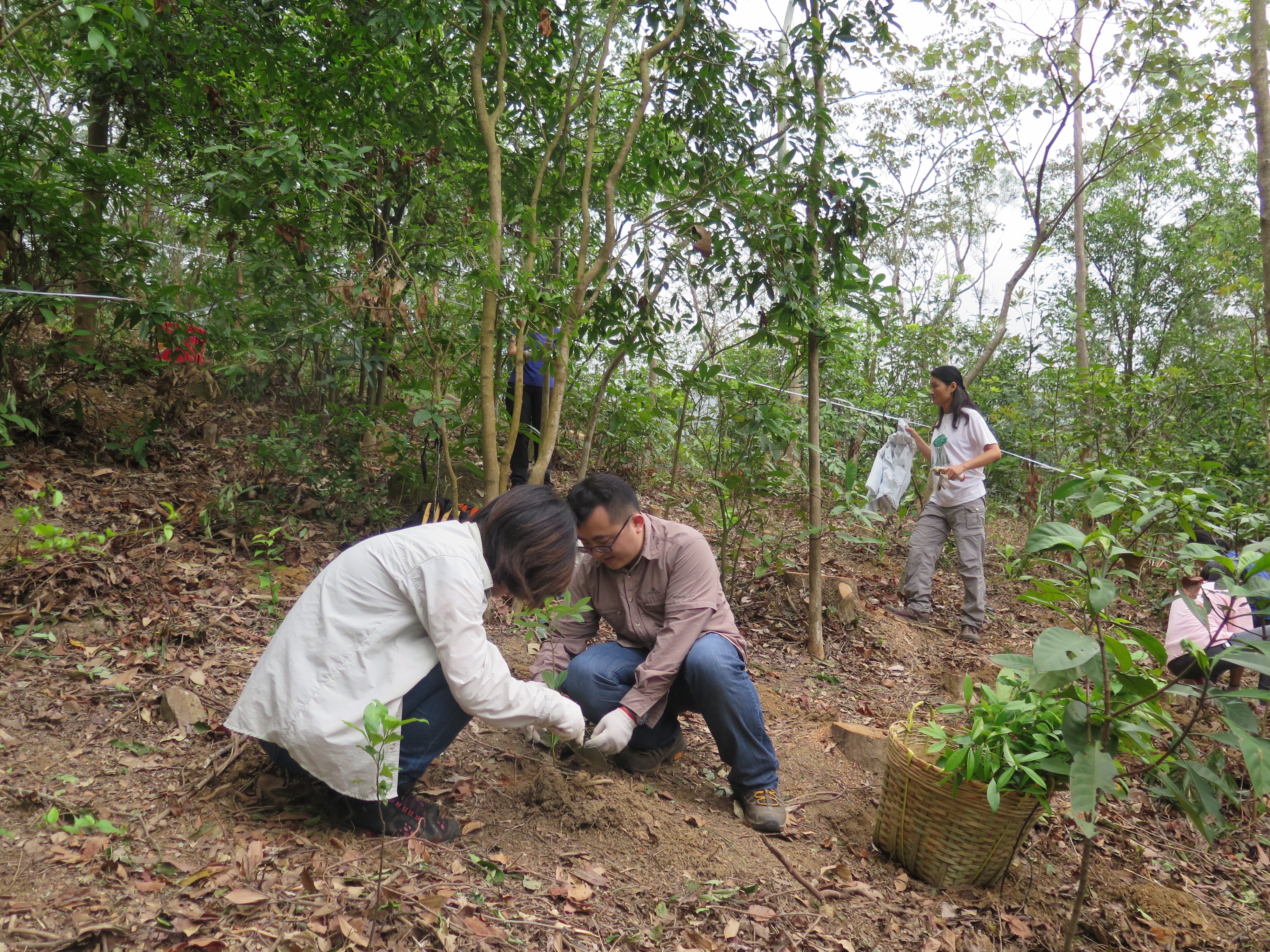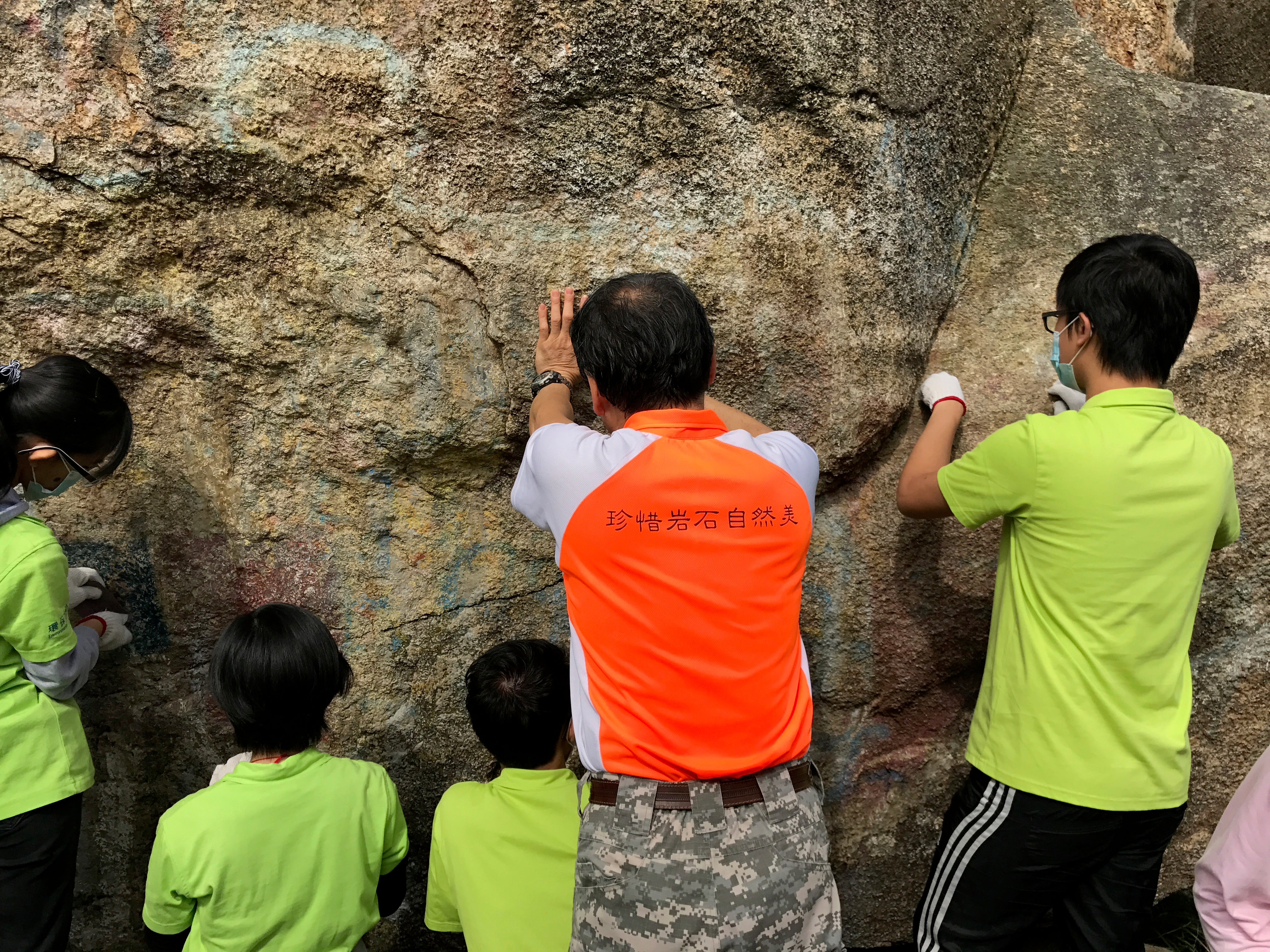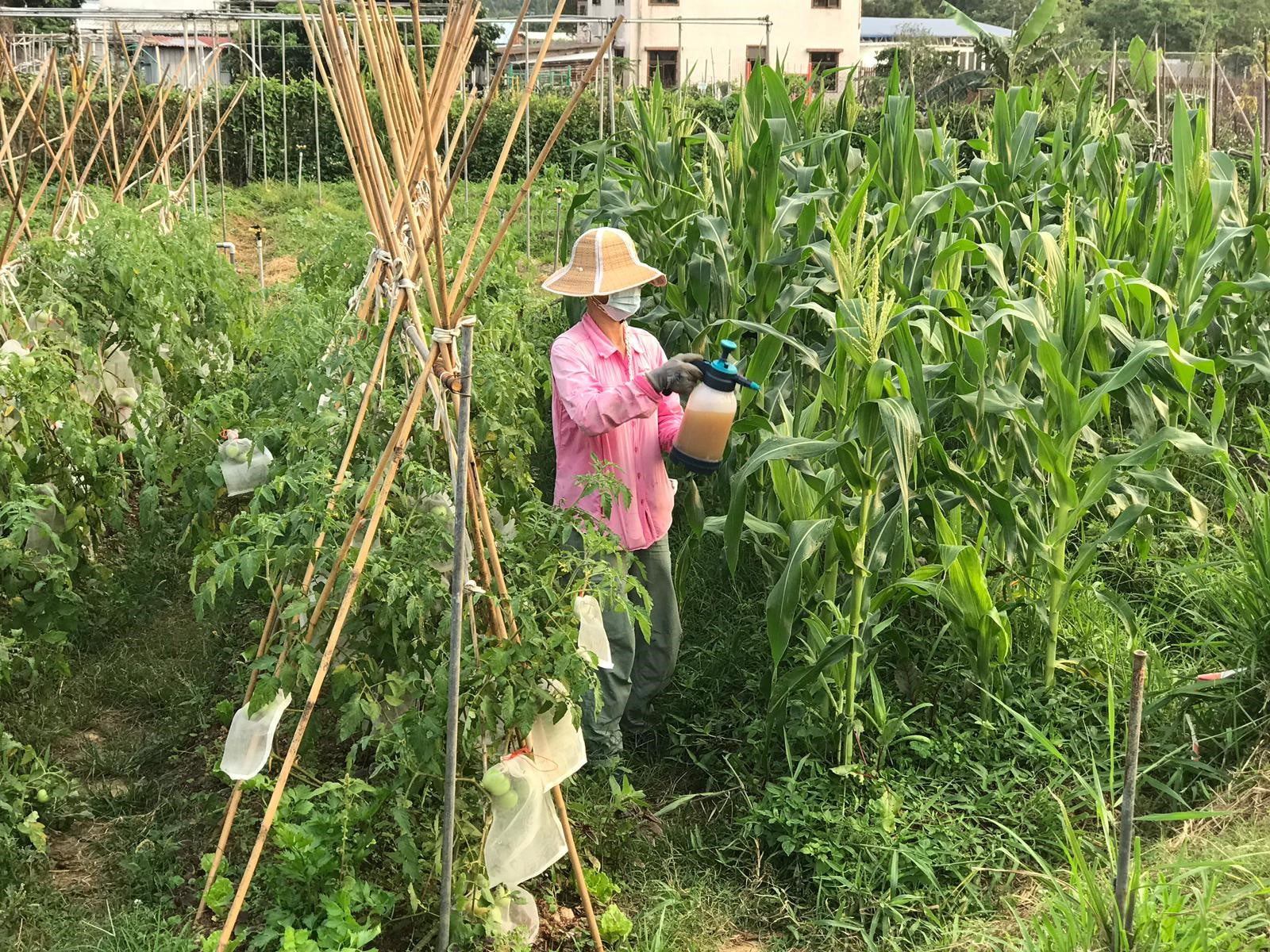Over 10 miles of mountain bike trails wind through Warren Wilson College’s campus, providing an ideal training ground for the school’s nationally ranked cycling teams—and an easy place for Monte Cosby and his teammates to get out for a ride between classes. Photo: Jess Daddio
“It’s such a beautiful day bro, I swear to God.”
Monte Cosby tilts his face toward the sky, his deep brown eyes shaded by the brim of a crisp black Yankees cap. He breathes in the acrid tarmac and tropic dankness of a river city, his city: Richmond, Virginia.
He sighs; this is his final summer weekend before returning to college. Leaving Richmond is always bittersweet. Neighborhood cookouts, training bike rides on the Virginia Capital Trail, night cruises on empty streets, that familiar skyline of riverfront high-rises. Never mind the city has dealt Monte more heartache than any 21-year-old should ever endure. Richmond is home.
“I’m excited, same time, homesick,” Monte says. “I know people [at school] but I don’t know people.”
In a few days, Monte will head nearly 400 miles southwest to Western North Carolina for the start of his junior year at Warren Wilson College.
Situated in the Swannanoa River Valley, Warren Wilson College is nothing like Fairfield Court, the public housing project in Richmond’s East End where Monte spent his first 18 years. A little under 3 miles from Richmond’s thriving downtown, Fairfield Court has seen little change since its 447 units were constructed in 1958. More than half of Fairfield residents live below the poverty line. The city’s vast network of riverside trails and parks feels worlds away from Fairfield’s nearly treeless grid of brick-and-cinder-block apartment buildings.
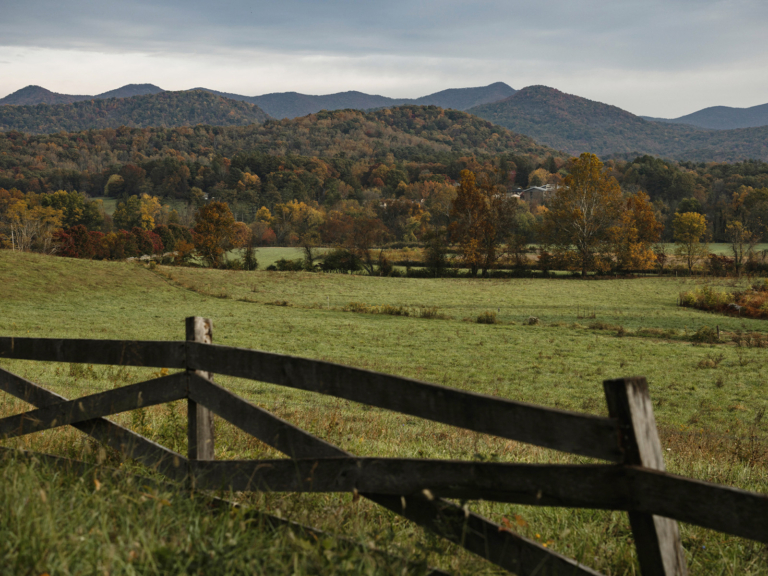
The epitome of pastoral Southeast charm. Warren Wilson College sits just a few miles from the border of the Pisgah National Forest and a short drive from the East Coast’s tallest mountains, including the 6,684-foot Mount Mitchell. Photo: Jess Daddio
Warren Wilson’s 1,135-acre campus, by comparison, is all perfectly preserved gambrel barns and sprawling green pastures. Before financial aid, the cost of attending the private school is $52,900 a year. There’s an organic garden where students grow and tend their own vegetables, and fields of free-range chickens, pigs and cattle. Some 10 miles of mountain bike trails thread the campus’ 650-acre hardwood forest, cradled by undulating layers of blue-green mountain ridgelines.
It is also very white. Of the 825 undergraduate students at Warren Wilson, only 5 percent are Black. Monte is the only Black student on the cycling team and the only Black student currently majoring in outdoor leadership. Some days, that fact doesn’t bother him. On others, he feels every mile between him and home.
In the two years since Monte left for college, the bike has been his constant. In the years before college, after a few neighborhood friends introduced him to competitive cycling, the lessons bikes taught him fundamentally changed the way he moved in the world. They opened entire new worlds. Without the bike, he’d never have heard about Warren Wilson, let alone earned a full-ride scholarship and become the first in his family to attend college. Before bikes, he was just trying to survive.
“There’s only three ways in the hood: You can die, go to jail or you can get out,” he says. “And more often, there’s only two ways: jail and death. I took a different route.”
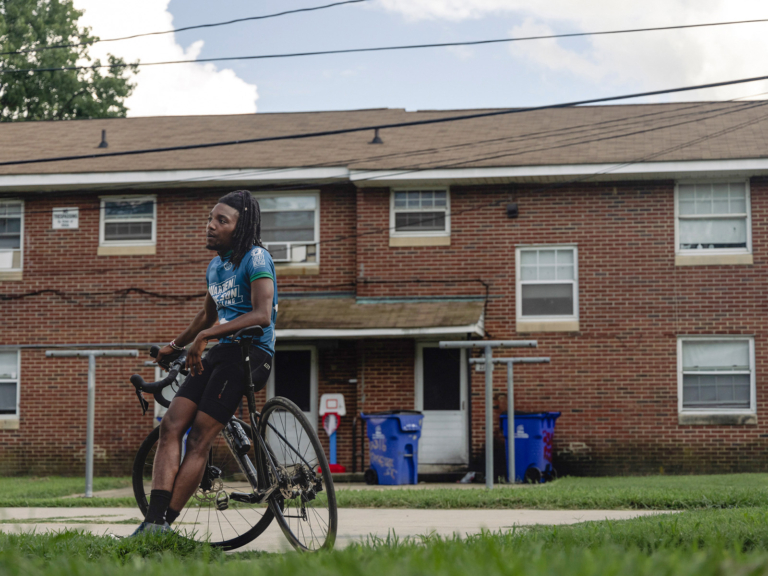
Monte was born and raised in Fairfield Court, one of six public housing projects in Richmond’s East End, and—like many of his teammates at the Richmond Cycling Corps (RCC)—bikes gave him a new way to explore his hometown. “I wasn’t familiar with any of the trails that was in Richmond until [RCC] came about,” he says. “It was mind blowing all the things I was missing, that I was only five or 10 minutes away from.” Photo: Jess Daddio
Monte was born Demonte Malik Cosby on December 12, 2001. His mother, Coco, was 17 years old at the time and his sole provider. His father, Delando, was rarely present. By the time his brother and sister were born, then-5-year-old Monte was old enough to understand that life in Fairfield Court was hard. Most everyone bought groceries with food stamps. Monte’s neighbors and family members were in and out of jail. Women like his mother, who pulled long shifts at the 7-Eleven, worked overtime to provide for their families. Police harassment was a cornerstone of the neighborhood experience. Gun violence touched every family in one way or another.
At school, Monte struggled to learn in an overburdened and underfunded environment. The buildings were crumbling, the classrooms chaotic. Richmond public schools have long ranked among the worst in Virginia. The system was failing him, and Monte turned to the only path he believed was within his reach.
“[To be a] gangster,” says Monte. “That’s all I knew. Not too many people were coming into my community showing us [anything] other than gangsters, and the only people that was helping me out was gangsters.”
Like Monte, Levone Lewis lived in Fairfield Court, though he was a few years older. In 2010, a young Levone joined the Richmond Cycling Corps (RCC), a bike-centric nonprofit founded by a road cyclist named Craig Dodson. RCC was designed to provide relevant outreach for kids living in public housing, and after Craig gave a presentation at the local Boys & Girls Club, Levone and some friends started riding bikes after school.
The rides started mellow, more townie cruise than training ride, but soon Craig began challenging the kids to set goals: 25 miles in a single effort, 50, 75. Levone was 14 years old when he rode his first 100-mile road ride, called a “century.”
“I experienced freedom for the first time,” says Levone. “Being on a bike taught me a lot of different things about myself especially. When I got on a bike and I got a few miles away from [Fairfield Court], the first thing I realized was like a weight was lifted off my shoulders. The other thing the bike taught me was discipline. When stuff gets hard, don’t give up. You’re going to feel so much better when the hard part is over.”
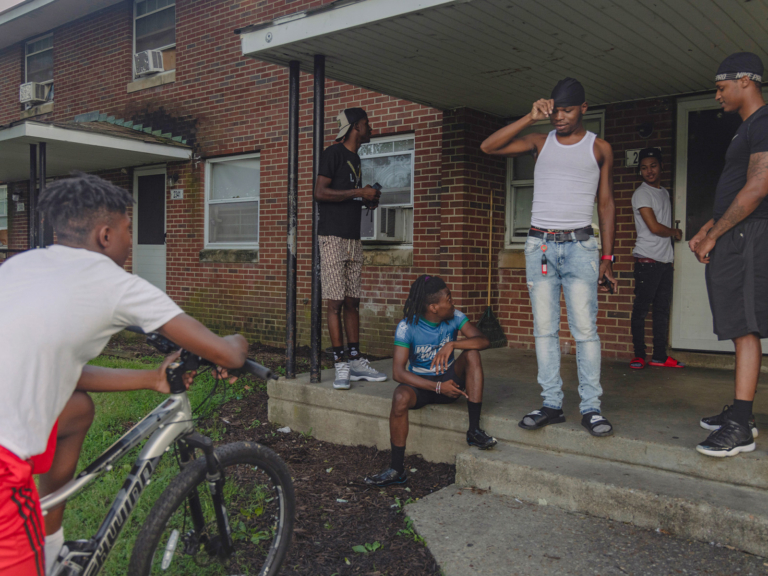
Though Monte’s family moved out of public housing before he finished high school, Fairfield Court and its tight knit community will always be home. During summer break, Monte catches up with former RCC teammate Levone Lewis (far right) and friends from the neighborhood. Photo: Jess Daddio
Being a few years younger, Monte naturally looked up to Levone and their friend Antonio, both of whom were among the first to ride with RCC. For years, Monte watched them race around the neighborhood all decked out in matching kits and helmets. Antonio and Levone trained together, suffered together, had fun together. They were doing something different, and Monte wanted in.
“I think it was easier for us to join because our homeboys were on the team,” says Monte. “White people is always the people that’s treated me wrong, from school teachers to judges to police officers and to people that run our public housing. I had trouble accepting white people for a while until Craig Dodson came, and he showed me that I could open my eyes and open my heart.”
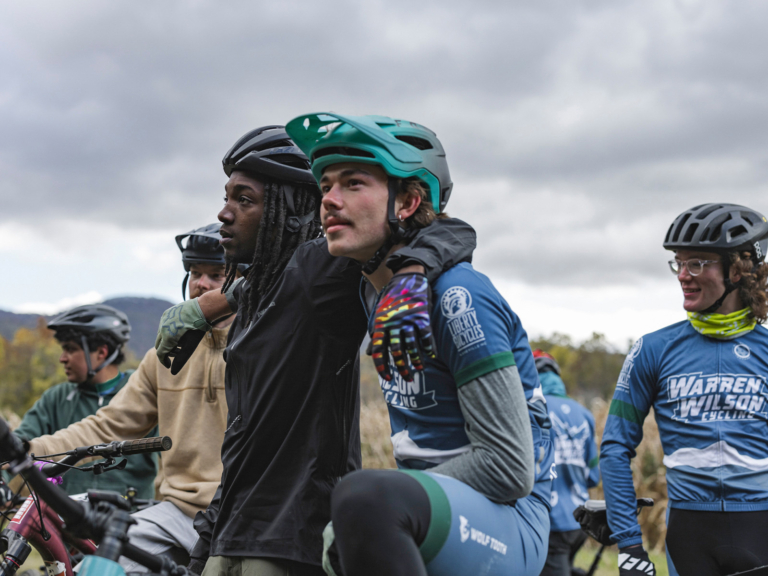
Monte and teammate Miles Bilbe huddle up during practice on Warren Wilson’s campus trails. Racing on Warren Wilson’s cycling team provided an instant community for Monte. Miles calls Monte the team’s “hype man” for his infectious excitement and perpetual support. Photo: Jess Daddio
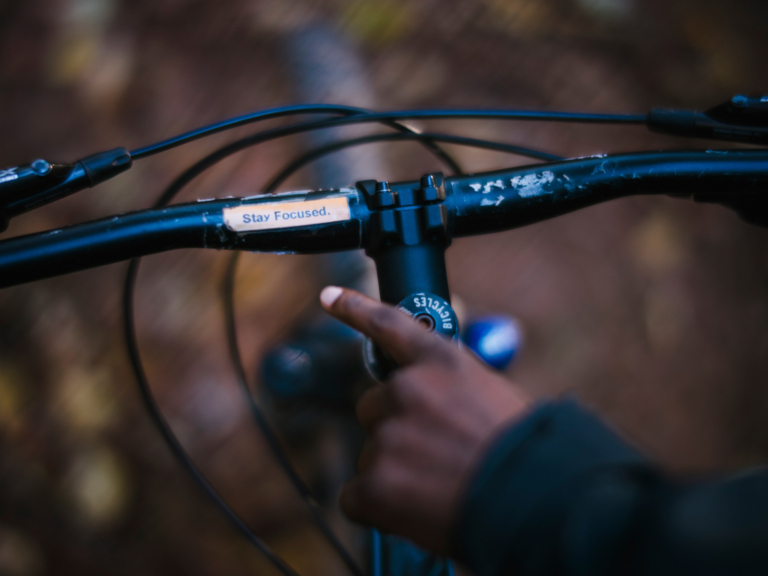
A motto to steer by. Photo: Joey Schusler
In 2014, RCC got a fleet of Kona Kahuna hardtails and formed one of Virginia’s first National Interscholastic Cycling Association (NICA) mountain bike teams, a nationwide nonprofit that organizes races and events for high schoolers. A year later, Monte, then a high school freshman, started racing mountain bikes with RCC in the Virginia Interscholastic Cycling League.
Racing was wholly different from the RCC team practices Monte was used to. The courses were harder, the hills bigger, the competition’s bikes lighter weight. RCC did well, with multiple top 20 results and one rider ending the season in the league’s top 25. But what Monte remembers most is grief.
Within one calendar year, five of his friends and family members died. First it was his neighbor, who was shot six times in front of Monte. Then in February of 2015, Monte’s favorite uncle was also shot and killed. That same month, his father died of an overdose. By Christmas, two more friends had died from gun violence.
Monte’s mental health deteriorated. All year, he was in and out of doctors’ offices. He started acting out in school and in practice, picking fights, talking back, refusing to ride. Life was hard enough without hill repeats and sprint workouts, so he began skipping practices and races, forcing RCC staff to come looking for him. He was kicked off the team three separate times.
“Bikes will take you exactly as far as you want them to,” says RCC Executive Director Matt Kuhn. “We can push all we want, but the kid has gotta pull some. We can open all the doors that we can, but the kid has gotta walk through them.
After being kicked off the third time, something shifted in Monte. He could do nothing to reverse the trauma he had endured or stop the violence that endangered his neighborhood. But he did know how to put his head down and grind. The bike had taught him that.
“[I felt] angry, lost, lonely … betrayal. I felt selfish,” says Monte. “But seeing my friends and seeing where the streets got them, I realized I could be something more than I was.”
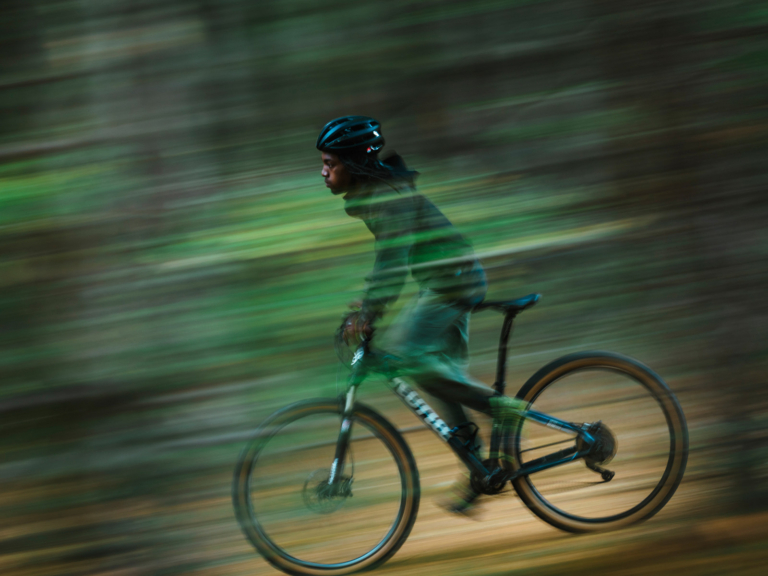
Monte’s riding style is fast and loose, and it’s obvious he loves riding a bike. He’s also pretty damn fast, as he demonstrates on the Warren Wilson campus trails. Photo: Joey Schusler
The RCC motto is “can’t stop, won’t stop,” and the mantra hit home with Monte, serving as a daily reminder that he was a fighter. In a way, there was comfort in the discomfort. He was no longer just a kid from Fairfield Court who rode bikes: He was a cyclist. He taped another reminder on his handlebars, just two words: stay focused.
In practice, he emerged as a leader, encouraging and pushing his teammates. At races, Monte became the first in RCC to intentionally make friends with white kids on the other teams. He had a natural ease in social settings, always quick with a joke and an infectious excitement.
“I always looked at him like a big brother,” says Korey Robinson, a recent RCC graduate who now rides for the elite Kelly Benefits Strategies development cycling team. “At first, he was reckless [on the bike]. I think he’s the only person in RCC that popped more tires in the season than I’ve ever seen. But I know how to be more friendly and talk to more people from him. Staying focused on whatever I want or whatever I’m trying to learn—I learned that from him, too.”
Life in Fairfield Court did not get easier. Eventually, Monte’s mom moved the family out of public housing, but he continued to lose friends, many to gun violence. As a junior in high school, Monte transferred to the Legacy Academy, a small homeschool cooperative that RCC launched in 2017 to serve kids in the East End who were at risk of not graduating.
The school, which was forced to shut its doors at the onset of the COVID-19 pandemic, never had more than 12 students at a time and the only sport it offered was cycling. When Monte joined Legacy, his grade point average was 1.4. When he graduated in the spring of 2019, he’d brought it up to a 2.5.
During Monte’s senior year at Legacy, a recruiter from Warren Wilson College visited to talk about the college’s cycling team. Even though Monte had dramatically improved his GPA, the recruiter told him it was still too low to be accepted. But the college offered Monte a deal: If he could maintain at least a 3.6 GPA at community college for one year, he’d be eligible for a full-ride scholarship to study and ride at Warren Wilson.
Though Monte had never envisioned college as a possibility, the prospect of receiving full financial aid motivated him to take on the challenge. Nearly one year after graduating high school, he got the official offer from Warren Wilson. His GPA was 4.0.
Now a junior at Warren Wilson, Monte makes regular appearances as a student-athlete on the dean’s list, a recognition which is reserved for students with a GPA of 3.5 or higher. He’s earned certifications in the Leave No Trace Seven Principles and swiftwater rescue, and next year he’ll take a 10-day course to prepare for his Wilderness First Responder certification.
“I really never would have thought to see him there, period,” says Monte’s mother Coco. “For him to show me something different, it brings the best out of him and me. I hope he continues to do the same good stuff and don’t fall down, keep going.”
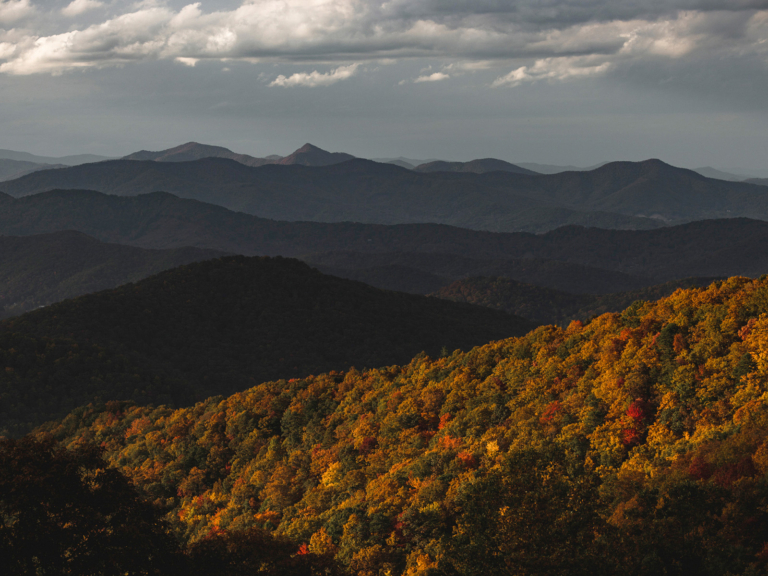
The Blue Ridge Mountains draw millions of visitors each year who come to hike through the fall foliage or simply drive along the Blue Ridge Parkway, the country’s most visited national park. More recently, the area has become an international destination for mountain bikers, too, who travel to ride Pisgah National Forest’s world-class trails—just a short drive from Warren Wilson. Photo: Jess Daddio
A cool autumn wind swirls through the golden-red canopy of towering white oaks and tulip poplars that shade Warren Wilson’s pump track. Monte snugs his beanie down around his locs. It’s been two months since he left Richmond for the start of his fall semester. The mountain bike race season is over, and he’s grateful for the break before cross season begins. His ACL is still on the mend from when he tore it during the 2021 school year while playing lacrosse. Plus, midterms are next week. Those two 10-page papers won’t write themselves.
He picks up a shovel and sinks it into the hard-packed dirt. To graduate, every student at Warren Wilson is required to work a minimum of 120 hours per semester on a campus work crew. Monte works on the cycling crew, and today, he and his teammate Sky Reznik are sculpting doubles for a slalom course.
The semester has been hard. The weekend before Monte left for college, another friend was shot and killed at their home in Gilpin Court, a housing project in the East End. It’s in these moments that Monte remembers his family. He thinks about his little brother, who graduated from basic training with the Marines. He thinks about his little sister, who attends a Richmond charter school and is at the top of her class. He thinks about his mother and grandmother, how their unconditional love and support has anchored him for 21 years. He thinks about his RCC teammates, too, and the team’s motto: “Can’t stop, won’t stop.”
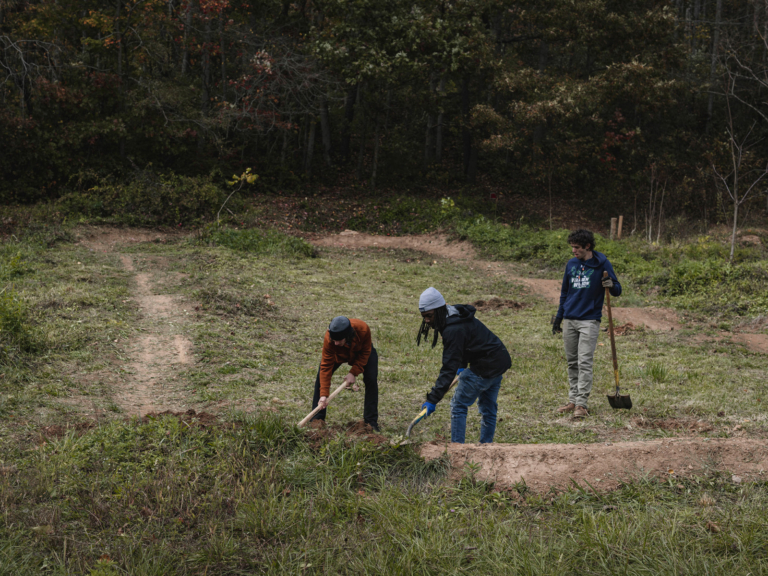
No dig, no ride. Monte and fellow cycling team member Sky Reznik earn some community service hours and singletrack karma while digging on the campus pump track and skills course, alongside Head Coach Harris Wagner. Photo: Jess Daddio
Earlier this semester, Monte shared his own lived experiences growing up in public housing for a presentation in Universal Adventure Programming, a course which focuses on issues of race, gender, class and ability within the outdoors. Interwoven with his own stories, Monte explored how the intrinsically racist system of redlining made it harder for him and other kids from the East End to access Richmond’s wealth of green spaces.
“The kids are missing a lot from our neighborhoods. They’re not a part of something,” says Monte. “I wasn’t familiar with any of the trails that was in Richmond until [RCC] came about. It was mind blowing all the things I was missing, that I was only five or 10 minutes away from. I didn’t know mountain biking was a thing. Same thing for camping, climbing, kayaking, canoeing.
“Being around different people and being in the outdoors—you’re not around the neighborhood, you’re not seeing gun violence. You’re seeing new things, you’re learning new things, you’re opening your mind up, you’re expanding everything about yourself.”
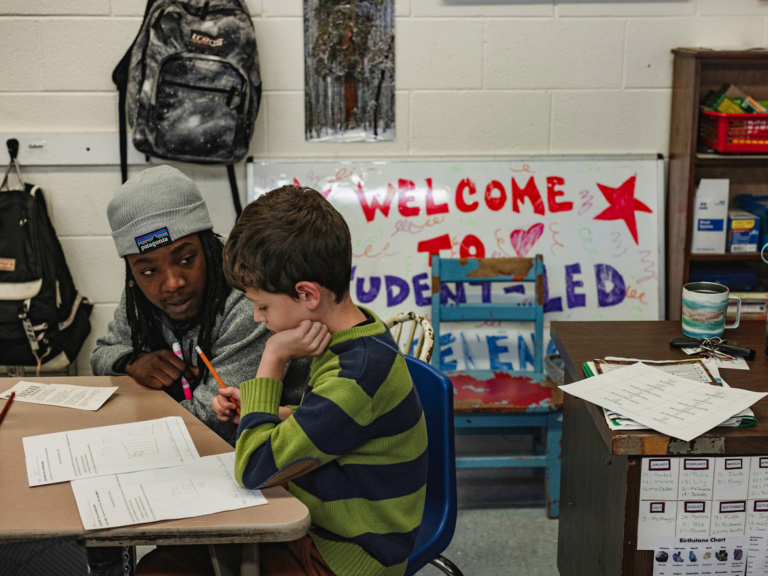
College has pushed Monte to step into his own as a leader, both on the trail and in the classroom. Most recently, that’s included mentoring students at Evergreen Community Charter School in Asheville; in the future, he wants to connect kids from neighborhoods like Fairfield Court to bikes and the outdoors. Photo: Jess Daddio
Monte enjoys racing bikes, but he’s not sure he’ll keep racing after college. He wants to connect kids from neighborhoods like Fairfield Court to bikes and the outdoors. Finding that outlet taught Monte lessons beyond the bike that seeped into his everyday life. It gave him perspective. It not only taught him the value of hard work but also how to build community and prioritize mental health.
“Even if you have ups and downs, don’t give up, no matter how hard it gets,” he says. “Always keep your mind going, always keep your legs going, keep your focus going. If no one is there for you, be there for yourself. If you got feelings, say your feelings. It’s okay to be open, it’s okay to be vulnerable. Be different. Be bold. Inspire others.”
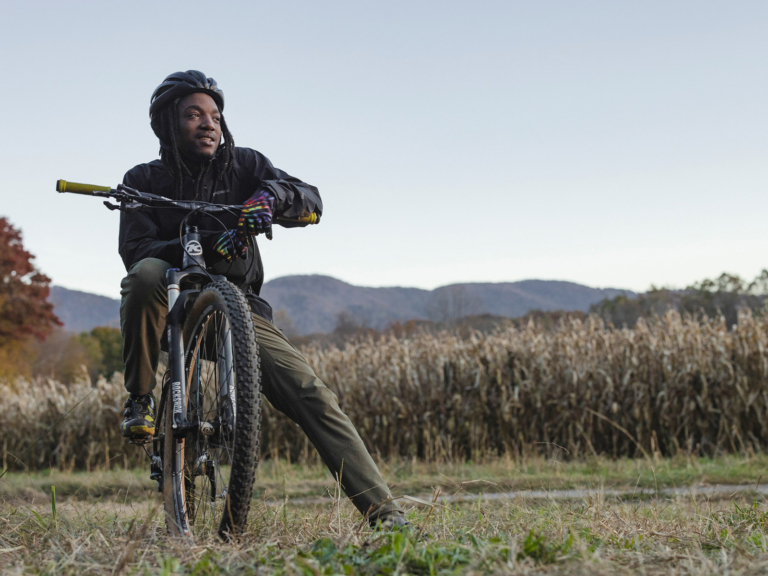
On some days, Monte can feel every mile between his dorm at Warren Wilson and his home in Richmond, but the bike has always been the thread that’s tied these two seemingly disparate worlds together. Photo: Jess Daddio

